第33章 CHAPTER VI MY SCHOOLING(7)
With Moquin-Tandon, new vistas opened before me. Here it was no longer the case of a nomenclator with an infallible memory: he was a naturalist with far-reaching ideas, a philosopher who soared above petty details to comprehensive views of life, a writer, a poet who knew how to clothe the naked truth in the magic mantle of the glowing word. Never again shall I sit at an intellectual feast like that: 'Leave your mathematics,' he said. 'No one will take the least interest in your formula. Get to the beast, the plant;and, if, as I believe, the fever burns in your veins, you will find men to listen to you.'
We made an expedition to the center of the island, to Monte Renoso, with which I was already familiar. I made the scientist pick the hoary everlasting (Helichrysum frigidum), which makes a wonderful patch of silver; the many-headed thrift, or mouflon grass (Armeria multiceps), which the Corsicans call erba muorone; the downy marguerite (Leucanthemum tomosum),which, clad in wadding, shivers amid the snows; and many other rarities dear to the botanist.
Moquin-Tandon was jubilant. I, on my side, was much more attracted and overcome by his words and his enthusiasm than by the hoary everlasting. When we came down from the cold mountaintop, my mind was made up: mathematics would be abandoned.
On the day before his departure, he said to me: 'You interest yourself in shells. That is something, but it is not enough. You must look into the animal itself. I will show you how it's done.'
And, taking a sharp pair of scissors from the family work-basket and a couple of needles stuck into a bit of vine shoot which served as a makeshift handle, he showed me the anatomy of a snail in a soup plate filled with water. Gradually he explained and sketched the organs which he spread before my eyes. This was the only, never-to-be-forgotten lesson in natural history that I ever received in my life.
It is time to conclude. I was cross-examining myself, being unable to cross-examine the silent Beetle. As far as it is possible to read within myself, I answer as follows: 'From early childhood, from the moment of my first mental awakening, I have felt drawn towards the things of nature, or, to return to our catchword, Ihave the gift, the bump of observation.'
After the details which I have already given about my ancestors, it would be ridiculous to look to heredity for an explanation of the fact. Nor would any one venture to suggest the words or example of my masters. Of scientific education, the fruit of college training, I had none whatever. I never set foot in a lecture hall except to undergo the ordeal of examinations. Without masters, without guides, often without books, in spite of poverty, that terrible extinguisher, I went ahead, persisted, facing my difficulties, until the indomitable bump ended by shedding its scanty contents. Yes, they were very scanty, yet possibly of some value, if circumstances had come to their assistance. I was a born animalist. Why and how? No reply.
We thus have, all of us, in different directions and in a greater or lesser degree, characteristics that brand us with a special mark, characteristics of an unfathomable origin. They exist because they exist; and that is all that any one can say. The gift is not handed down: the man of talent has a fool for a son. Nor is it acquired; but it is improved by practice. He who has not the germ of it in his veins will never possess it, in spite of all the pains of a hothouse education.
That to which we give the name of instinct when speaking of animals is something similar to genius. It is, in both cases, a peak that rises above the ordinary level. But instinct is handed down, unchanged and undiminished, throughout the sequence of a species;it is permanent and general and in this it differs greatly from genius, which is not transmissible and changes in different cases.
Instinct is the inviolable heritage of the family and falls to one and all, without distinction. Here the difference ends.
Independent of similarity of structure, it breaks out like genius, here or elsewhere, for no perceptible reason. Nothing causes it to be foreseen, nothing in the organization explains it. If cross-examined on this point, the Dung beetles and the rest, each with his own peculiar talent, would answer, were we able to understand them: 'Instinct is the animal's genius.'